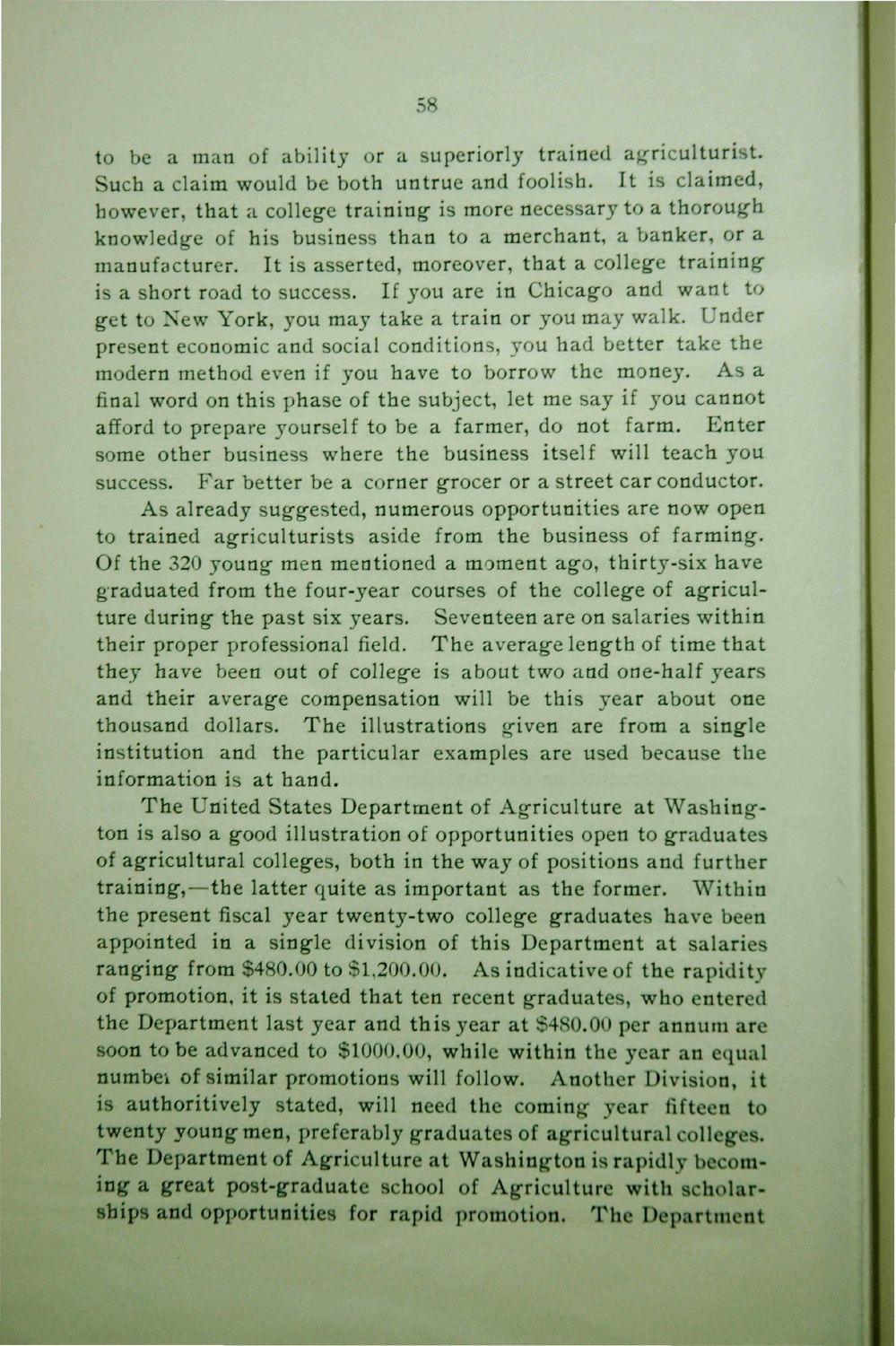| |
| |
Caption: Dedication - Ag Building
This is a reduced-resolution page image for fast online browsing.

EXTRACTED TEXT FROM PAGE:
58 to be a man of ability or a superiorly trained agriculturist. Such a claim would be both untrue and foolish. It is claimed, however, that a college training is more necessary to a thorough knowledge of his business than to a merchant, a banker, or a manufacturer. It is asserted, moreover, that a college training* is a short road to success. If you are in Chicago and want to get to New York, you may take a train or you may walk. Under present economic and social conditions, you had better take the modern method even if you have to borrow the money. As a final word on this phase of the subject, let me say if you cannot afford to prepare yourself to be a farmer, do not farm. Enter some other business where the business itself will teach you success. Far better be a corner grocer or a street car conductor. As already suggested, numerous opportunities are now open to trained agriculturists aside from the business of farming. Of the 320 young men mentioned a moment ago, thirty-six have graduated from the four-year courses of the college of agriculture during the past six years. Seventeen are on salaries within their proper professional field. The average length of time that they have been out of college is about two and one-half years and their average compensation will be this year about one thousand dollars. The illustrations given are from a single institution and the particular examples are used because the information is at hand. The United States Department of Agriculture at Washington is also a good illustration of opportunities open to graduates of agricultural colleges, both in the way of positions and further training,—the latter quite as important as the former. Within the present fiscal year twenty-two college graduates have been appointed in a single division of this Department at salaries ranging from $480.00 to $1,200.00. As indicative of the rapidity of promotion, it is stated that ten recent graduates, who entered the Department last year and this year at $480.00 per annum are soon to be advanced to $1000.00, while within the year an equal numbei of similar promotions will follow. Another Division, it is authoritively stated, will need the coming year fifteen to twenty young men, preferably graduates of agricultural colleges. The Department of Agriculture at Washington is rapidly becoming a great post-graduate school of Agriculture with scholarships and opportunities for rapid promotion. The Department
| |